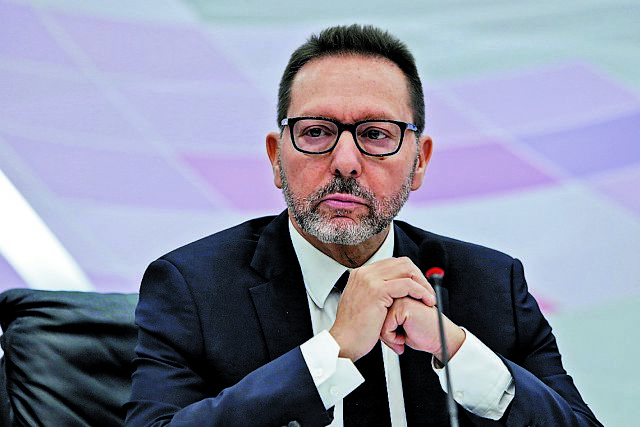
Greece is on the threshold of regaining investment grade after 12 years, declared the Governor of the Bank of Greece Yannis Stournaras to the Financial Times, while calling on the country’s next government to maintain fiscal prudence.
Scope Ratings: What’s in store after the German agency’s investment grade rating
Mr Stournaras told the Financial Times he was confident rating agencies would upgrade Greece’s bonds within months if MPs showed an intention to keep reforms and take advantage of a “window of opportunity” to significantly reduce its burden country’s debt. “We believe that 2023 is the year we will take the investment grade,” said Mr. Stournaras.
Elections and the “virtuous circle”
As the FT comments, the reports from the Central Bank governor “come as the country prepares for spring elections, with the centre-right New Democracy party leading in the polls. The party has declared that it will continue to carefully manage public finances. Stournaras stated that the most likely time for the upgrade is “immediately after the elections”, but that it could come even before the polls are set.”
Mr. Stournaras described as an “opportunity not to be missed” the possibility “to reduce the debt-to-GDP ratio to such a level that nine years from now the interest payments, which are now in a grace period, will not create a new debt problem”.
The FT recalls that Greece lost its investment grade in January 2011, “when its financial crisis threatened to break up the eurozone. Its rating fell to CCC- before recovering to BB+, one step below investment grade, as the country’s economic recovery gained momentum. Greece managed to reduce its debt-to-GDP ratio by more than 24 percentage points last year alone, with its economy expanding just over 5% during 2022.”
“A few years ago, few people expected that Greece would remain in the eurozone. Now, it not only remains, but outperforms the eurozone average,” the BoE governor said, warning, however, that this “virtuous [economic] cycle” should not be wasted.
The message for the Tempi tragedy
At the same time, on the occasion of the train accident in Tempi, Mr. Stournaras called on the government to make some desperately needed investments in the country’s suffering infrastructure. “Greece has succeeded in correcting macroeconomic imbalances and improving price and wage competitiveness, but structural competitiveness remains low compared to other members of the eurozone,” the BoE governor said. “The country’s infrastructure and the modernization of the public sector remain an issue,” he added.
The British publication comments that, despite the recovery of recent years, Greece still holds the highest debt in the eurozone, corresponding to 170% of domestic production. “Under the terms of the bailout, official creditors assumed a large portion of Greece’s debt while charging relatively low interest rates to the government to service it until 2032,” it noted.
“Growth will also be lower this year as higher interest rates are expected to weigh on demand,” the FT points out. “It will take a sustainable fiscal effort,” said Mr. Stournaras for his part, adding that it will not be easy for the government to go from a small primary deficit to a fiscal surplus by 2024.
Inflation and the interest rate message
“High inflation will also weigh on the economic outlook. Core price pressures – which exclude changes in food and energy costs and are considered a better gauge of underlying inflation – reached a new regional high of 5.6%,” the report noted. “However, Mr Stournaras, who sits on the board of the European Central Bank, pointed out that readings of headline inflation were much better (lower) than expected in December due to the sharp drop in energy prices.”
Finally, regarding the interest rate path, the BoE governor told the FT that he would “not commit in advance to specific further rate hikes in an environment where headline inflation is declining.” “This could lead to increased confusion in the market rather than reducing it,” commented Mr. Stournaras, with FT underscoring that the Greek central banker’s reports “are at odds with the increasingly hawkish tone of many of his ECB rate-setting colleagues”. Its president, Christine Lagarde, said the central bank was “very, very likely” to raise the deposit rate from 2.5% to 3% at its meeting on March 16, warning that “inflation is a monster that must to hit on the head”, the FT reminds.
Latest News

Motor Oil Results for 2024: Adjusted EBITDA of 995 mln€; Proposed Dividend of 1.4€ Per Share
Adjusted EBITDA for 2024 was down 33% yoy. The adjusted profit after tax for 2024 stood at 504 million euros, a 43% decrease from the previous year

Cost of Living: Why Greece’s 3% Inflation Is Raising Alarm
Greece appears to be in a more difficult position when it comes to price hikes, just as we enter the era of Trump’s tariffs.

Fitch Ratings Upgrades the Four Greek Systemic Banks
NBG’s upgrade reflects the bank’s ongoing improvements in its credit profile, Fitch notes in its report, including strong profitability, a reduction in non-performing exposures (NPEs), and lower credit losses

Trump to Announce Sweeping New Tariffs Wednesday, Global Retaliation Expected
With Trump's announcement just hours away, markets, businesses, and foreign governments are bracing for the fallout of one of the most aggressive shifts in U.S. trade policy in decades.

Inflation in Greece at 3.1% in March, Eurostat Reports
Average inflation in the eurozone settled at 2.2%, compared to 2.3% in February

Greece’s Unemployment Rate Drops to 8.6% in February
Despite the overall decline, unemployment remains higher among women and young people.

Jerry Kalogiratos Highlights Key Role of Energy Transition and Data Demand in LNG Outlook
Energy transition and the prospects of LNG were discussed at Capital Link’s 19th Annual International Maritime Forum, during a panel discussion with Jerry Kalogiratos (Capital Clean Energy Carriers Corp.)

Santorini Safe and Ready for a Dynamic Tourism Season
Authenticity, cultural heritage, and genuine experiences at the center of Santorini's new promotional campaign

Electricity Bills: Greece Announces Reduced Tariffs Schedule
Greece will now offer lower electricity rates between 11:00-15:00 and 02:00-04:00

Chevron Confirms Eyeing Natural Gas Exploration South of Crete
Chevron recently declared its intent to explore a third area, south of the Peloponnese.












![Τουρκία: Μεγάλες βλέψεις για παραγωγή ηλεκτρικών οχημάτων [γράφημα]](https://www.ot.gr/wp-content/uploads/2025/03/ot_turkish_autos-90x90.png)











![ΕΛΣΤΑΤ: Αυξήθηκε η οικοδομική δραστηριότητα κατά 15,6% το Δεκέμβριο [πίνακες]](https://www.ot.gr/wp-content/uploads/2025/03/DSC9655-2-1024x569-1-90x90.jpg)

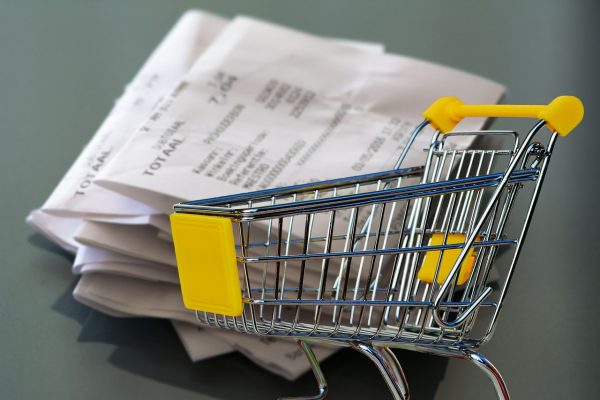
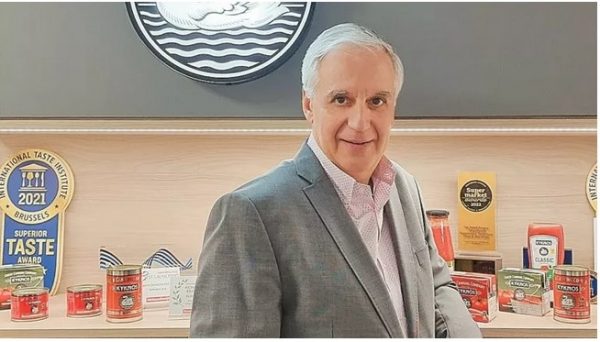

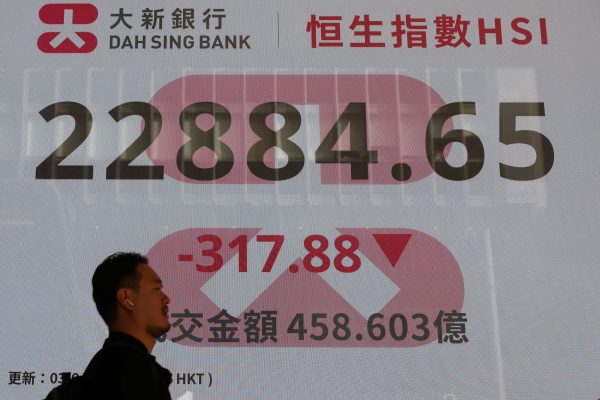



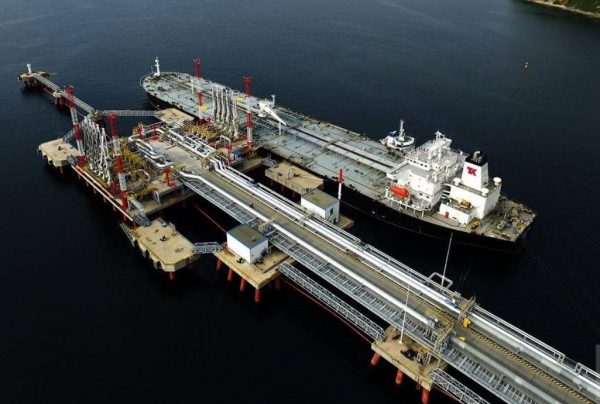








 Αριθμός Πιστοποίησης
Αριθμός Πιστοποίησης